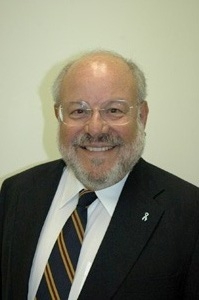Finally, Donald Trump is being identified in the main ring of the 2016 Republican Party political circus in the United States as being a "con artist," as Senator Marco Rubio called him last week.
"It's time to pull his mask off so people can see what we're dealing with here," Rubio said at campaign rally in Dallas Friday. http://lubbockonline.com/filed-online/2016-02-26/dallas-rubio-eviscerates-con-artist-trump#.VtCUTaTSljp That followed Rubio repeatedly describing Trump as a "con artist" the evening before in the last TV debate between GOP rivals for the Republican presidential nomination, and in later media appearances.
"You all have friends that are thinking about voting for Donald Trump," Rubio went on at the rally. "Friends do not let friends vote for con artists."
Being a con artist is not a disqualifying factor for a politician. In the U.S.--and elsewhere--there have been plenty of con artists running for political office.
But that Trump has gotten so far without being fully called out in a bid for what is widely considered the most powerful office in the world has been remarkable--and outrageous.
There has been some investigative journalism pointing to this aspect of Trump.
Especially noteworthy, an extensive article in November in Time magazine headlined: "TRUMP U. What the litigation over Trump University reveals about the man who would be President."
Written by Steven Brill, journalist, attorney and founder of Brill's Content, a media-watch publication, it compared to snake oil what was named Trump University, "a series of adult-education classes offering Donald's Trump's real estate investing methods."
"Trump and his university--which operated from 2005 through 2010, when it was shut down as [law]suits and multiple state attorneys generals investigations were beginning--lured approximately 7,000 consumers into paying $1,495 to $34,995 for courses," Brill relates. "Trump 'created, funded, implemented and benefited from a scam that cost them thousands, even tens of thousands of dollars each,' the lawyers suing him have argued." click here
"I mean this is a guy," said Rubio at the rally, "that's taken Trump Airlines bankrupt, Trump Vodka, nobody wanted it, Trump Mortgage, was a disaster, Trump University was a fraud."
Rubio also claimed, as he hit hard at Trump at the rally, that: "He's being treated with kid gloves by many in the media in the hope that he's the nominee. Some of them are biased; they'd love to see a liberal like Donald Trump take over the Republican Party and others know he is easy to beat once he gets there."
As a journalism professor, I disagree with this analysis.
Trump has succeeded in manipulating media by, for starters, using his bombastic style to fiercely attack the press for doing its job of asking tough questions. His public assault on Megyn Kelly of Fox News after she had the nerve as a debate moderator to throw hardball questions at Trump was typical of how he has used intimidation on media people and institutions.
Then there's his sense of what inflames--which media cover like any big fire.
As Howard Fineman, former Newsweek chief political correspondent and now global editorial director at the Huffington Post, has written, based on an interview with historian Doris Kearns Goodwin: "Trump deploys fame for fame's sake, taps into populist expressions of fear, hatred and resentment and shows a knack for picking fights and a braggart's focus on the horse race. All of which allow him to play into--and exploit--every media weakness and bad habit in a chase for audience and numbers."
Fineman in his article last month--headed "Epic Media Fall: How And Why Trump Trumped The Press"--quoted Goodwin as noting how the media "are the key purveyors of the qualities of the candidates and of telling people who they are what they stand for."
(Note: You can view every article as one long page if you sign up as an Advocate Member, or higher).





